The world of entrepreneurship is a relentless, exhilarating, and often unforgiving journey. It demands not just brilliant ideas and solid business plans, but also an extraordinary degree of resilience, adaptability, and sharp decision-making. In this turbulent landscape, traditional tools like market analysis, funding acquisition, and networking are undoubtedly crucial. However, the most successful entrepreneurs often possess an inner toolkit, a set of mental frameworks that allow them to navigate uncertainty, withstand setbacks, and consistently make sound judgments. This essay argues that two ancient philosophies, Stoicism and Skepticism, are not just academic curiosities but profoundly practical and powerful business tools for the modern “mindful entrepreneur.” Far from being relics of the past, these wisdom traditions offer timeless advantages in an increasingly complex and volatile world, aligning perfectly with EUSMS’s holistic approach to entrepreneurial development.

Understanding the Mindful Entrepreneur

Before diving into Stoicism and Skepticism, it’s vital to define the “mindful entrepreneur.” Mindfulness, in a business context, is the practice of bringing present-moment awareness to one’s thoughts, emotions, and external circumstances without judgment. It’s about being fully engaged in the “now” of your business, whether it’s a critical meeting, a challenging problem, or a moment of success. This contrasts sharply with the reactive, stressed, and often distracted state that many entrepreneurs find themselves in.
For the mindful entrepreneur, every decision is approached with clarity, every setback is met with a calm assessment, and every opportunity is seized with focused intention. This heightened awareness leads to reduced stress, as the mind is less prone to dwelling on past failures or future anxieties. It fosters better decision-making by allowing entrepreneurs to observe situations objectively, rather than being swayed by immediate emotions or external pressures. Moreover, mindfulness enhances creativity, as a calmer mind is more open to novel ideas and solutions. It improves communication, as listening becomes more active and responses more considered. In essence, mindfulness provides the foundational mental clarity upon which the practical applications of Stoicism and Skepticism can be built, creating a leader who is both grounded and agile. At EUSMS, our “Mindfulness” pillar is designed precisely to cultivate this essential quality, enabling entrepreneurs to explore their inner selves, manage stress, and enhance decision-making, which are crucial for navigating the unpredictable entrepreneurial journey.
Stoicism as a Business Superpower

Stoicism, an ancient Greek philosophy, teaches the development of self-control and fortitude as a means of overcoming destructive emotions. It’s not about being emotionless, but about understanding and managing emotions through reason. For entrepreneurs, Stoicism offers a robust framework for building mental resilience, making ethical choices, and maintaining focus amidst chaos.
- The Dichotomy of Control: Focus on What You Can Influence
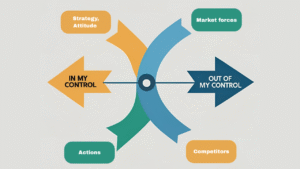
At the heart of Stoicism is the “Dichotomy of Control,” a principle articulated by Epictetus: “Some things are in our control and others are not. Things in our control are opinion, pursuit, desire, aversion, and, in a word, whatever are our own actions. Things not in our control are body, property, reputation, command, and, in a word, whatever are not our own actions.”
For an entrepreneur, this is a liberating realization. You cannot control market fluctuations, competitor actions, investor decisions, or even whether a customer chooses your product. But you can control your effort, your strategy, your response to setbacks, your commitment to learning, and the quality of your product or service.
Benefit: This principle dramatically reduces anxiety and directs energy effectively. Instead of worrying about external factors beyond your influence, you channel your focus into actionable steps. This prevents burnout and maintains mental clarity.
Example: Imagine an e-commerce startup in Kenya facing unexpected import delays due to global supply chain issues. A non-Stoic entrepreneur might panic, blame external factors, and become paralyzed by frustration. A Stoic entrepreneur, however, would immediately focus on what they can control: communicating transparently with customers, exploring alternative local suppliers, adjusting marketing messages, and devising contingency plans. They accept the external reality (the delay) but exert full control over their response.
Quote: “The chief task in life is simply this: to identify and separate matters so that I can say clearly to myself which are externals not under my control, and which have to do with the choices I actually control.” – Epictetus.
- Virtue as the Highest Good: Building an Ethical Foundation
Stoicism emphasizes living in accordance with virtue: Wisdom, Courage, Justice, and Temperance. For an entrepreneur, this translates into building a business with integrity at its core.
Wisdom: Making sound judgments based on knowledge and experience, understanding market dynamics.
Courage: Taking calculated risks, facing competition, and persevering through adversity.
Justice: Treating employees, customers, suppliers, and competitors fairly and ethically.
Temperance: Exercising self-control, avoiding excessive spending, and maintaining balance.
Benefit: An ethical foundation builds long-term trust and reputation, which are invaluable assets. It attracts loyal customers, dedicated employees, and responsible investors. It also leads to more sustainable business practices, aligning with EUSMS’s “Universal Ethical Principles” pillar.
Example: A youth-led social enterprise in Kenya might choose to source materials ethically from local communities, even if it means slightly higher costs, because it aligns with their value of justice and community empowerment. This builds a strong brand story and attracts customers who value social responsibility.
Quote: “Waste no more time arguing about what a good man should be. Be one.” – Marcus Aurelius. This applies directly to being a good, ethical business leader.
- Discipline and Consistency: The Power of the Daily Grind
Stoicism champions consistent effort and self-discipline over sporadic bursts of activity. This is about the daily habits that compound into significant progress.
Benefit: Steady progress, habit formation, and avoidance of burnout. Entrepreneurship is a marathon, not a sprint, and consistent application of effort is key to long-term success.
Example: Consistently dedicating time to customer outreach, iterating on product features, or analyzing sales data, rather than only reacting to immediate crises. This disciplined approach ensures continuous improvement and growth.
Quote: “Every habit is strengthened by the repetition of the corresponding actions.” – Epictetus.
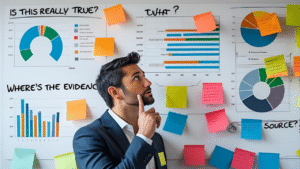
Skepticism as a Strategic Advantage
Skepticism, in its philosophical sense, is not about cynicism or disbelief, but about questioning assumptions, demanding evidence, and maintaining an open mind to new information. For entrepreneurs, this translates into rigorous critical thinking, evidence-based decision-making, and a healthy distrust of hype.
- Questioning Assumptions: Uncovering Deeper Truths
A skeptical entrepreneur doesn’t take anything at face value. They question market trends, customer feedback, expert opinions, and even their own initial ideas.
Benefit: This critical inquiry leads to a deeper understanding of real needs, identifies overlooked opportunities, and helps avoid the “herd mentality” that can lead to costly mistakes. It’s about finding the true problem to solve, not just the perceived one.
Example: A startup developing an app for small businesses might initially assume their target users need a complex accounting module. A skeptical approach would involve extensive interviews and observation, revealing that what users actually need is a simpler tool for managing daily cash flow and inventory, integrated with mobile money. By questioning the initial assumption, they build a more valuable product.
Quote: “The good thing about science is that it’s true whether or not you believe in it.” – Neil deGrasse Tyson (reflecting the evidence-based nature of skepticism). Carl Sagan, a proponent of scientific skepticism, famously said, “Extraordinary claims require extraordinary evidence.”
- Evidence-Based Decision Making: Data Over Gut Feelings
Skeptical entrepreneurs rely on data, experiments, and verifiable facts to guide their decisions, rather than pure intuition, anecdotes, or industry buzz.
Benefit: This reduces costly mistakes, optimizes resource allocation, and builds a stronger, more defensible business case. Every major decision, from product features to marketing spend, is informed by measurable results.
Example: Before launching a new marketing campaign, a skeptical e-commerce entrepreneur would run A/B tests on different ad creatives or landing pages to see which performs best. They wouldn’t just pick the one they “like” the most, but the one that data proves generates more conversions.
Quote: “If you can’t measure it, you can’t improve it.” – Peter Drucker (though not a philosopher, his emphasis on measurement aligns with skeptical, evidence-based practice).
- Continuous Learning and Iteration: The Scientific Method in Business
Skepticism encourages a scientific approach to business: forming hypotheses, running experiments, analyzing results, and iterating. Every outcome, whether success or failure, is an opportunity to learn and refine.
Benefit: Fosters a culture of continuous improvement and innovation. It builds resilience because “failures” are reframed as “lessons learned” in an ongoing experiment.
Example: Adopting an “agile” development methodology for a software product, where small features are released, tested with users, and refined based on real-world feedback, rather than spending years on a perfect, untested product.
EUSMS Pillar Connection: This aligns perfectly with EUSMS’s “Skepticism” pillar, empowering entrepreneurs to challenge assumptions, question authority, and suspend judgment to seek certain knowledge, fostering critical thinking and innovative problem-solving.
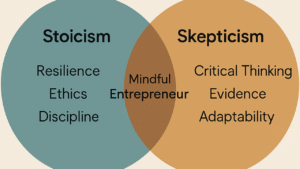
Integrating Stoicism and Skepticism for Holistic Entrepreneurship
The true power of these philosophies for the mindful entrepreneur lies not in applying them in isolation, but in their synergistic integration. Stoicism and Skepticism, when combined, create a balanced and formidable mental toolkit:
Stoicism provides the inner strength and emotional regulation: It teaches the entrepreneur what to control (their reactions, efforts, choices) and how to face adversity with calm fortitude. It builds the mental resilience needed to endure the inevitable stresses and setbacks of business. It ensures that even when the market is volatile or a deal falls through, the entrepreneur remains grounded and focused on their core purpose and values.
Skepticism provides the intellectual rigor and critical thinking: It teaches the entrepreneur how to analyze information, question assumptions, and make decisions based on evidence rather than emotion or hype. It ensures that the entrepreneur is not just resilient, but also smart and adaptable in their strategic choices.
Together, they create a balanced approach that is both robust and agile:
Resilience in the face of market uncertainty (Stoicism) combined with smart, evidence-based pivots (Skepticism): An entrepreneur faces a sudden shift in consumer behavior. Stoicism helps them remain calm and accept the external reality. Skepticism then kicks in, prompting them to rigorously analyze the new data, question old assumptions about their customers, and identify the most effective, evidence-backed pivot strategy.
Ethical decision-making (Stoicism) informed by critical analysis of complex situations (Skepticism): When faced with a difficult ethical dilemma (e.g., a chance to cut costs by compromising on ethical sourcing), Stoicism guides them towards justice and integrity. Skepticism ensures they critically analyze all angles, potential long-term consequences, and stakeholder impacts before making a decision.
Focus on long-term vision (Stoicism) while constantly testing and iterating (Skepticism): The Stoic entrepreneur maintains a clear, unwavering vision for their business’s purpose and impact, undeterred by short-term distractions. The Skeptical entrepreneur, however, constantly tests the path to that vision, iterating on products, marketing, and operations based on what the data reveals, ensuring the journey is efficient and effective.
Calm under pressure, yet sharp in analysis: The mindful entrepreneur, armed with these tools, can remain composed during crises (Stoicism) while simultaneously engaging in clear-headed, data-driven problem-solving (Skepticism). This combination is invaluable in the high-stakes world of startups.
This holistic approach is at the core of EUSMS’s philosophy. By integrating “Mindfulness,” “Stoicism,” and “Skepticism” alongside “Entrepreneurship” and “Universal Ethical Principles,” EUSMS aims to cultivate entrepreneurs who are not only successful in a conventional sense but also deeply resilient, ethically grounded, and intellectually agile. These are the qualities that foster sustainable businesses and drive meaningful change, even in the most challenging environments.
Conclusion
Entrepreneurship is a dynamic and often unpredictable journey, demanding more than just technical skills and market knowledge. It requires profound mental fortitude, clarity of thought, and an unwavering commitment to both personal growth and ethical conduct. The ancient philosophies of Stoicism and Skepticism, when embraced by the mindful entrepreneur, offer precisely these advantages.
Stoicism provides the bedrock of resilience, teaching us to focus on what is within our control, to embrace challenges as opportunities, to prepare for adversity, and to build businesses founded on integrity and discipline. It equips the entrepreneur with the inner calm and fortitude to navigate the inevitable storms of the business world.
Skepticism, on the other hand, sharpens the entrepreneurial mind, encouraging a relentless questioning of assumptions, a rigorous pursuit of evidence, and an open-mindedness to new information. It empowers entrepreneurs to make data-driven decisions, avoid costly fads, and continuously innovate and adapt.
Together, these philosophies cultivate a balanced and powerful entrepreneurial mindset. They enable leaders to remain composed under pressure, think critically in complex situations, and build ventures that are not only profitable but also purposeful and sustainable. For EUSMS, fostering these qualities in the next generation of entrepreneurs is paramount. These ancient wisdoms, far from being relics of the past, are indeed the most relevant and powerful tools for today’s and tomorrow’s entrepreneurs, enabling them to build not just successful businesses, but also meaningful and enduring legacies.
Author : Hala Maala
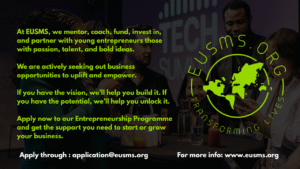

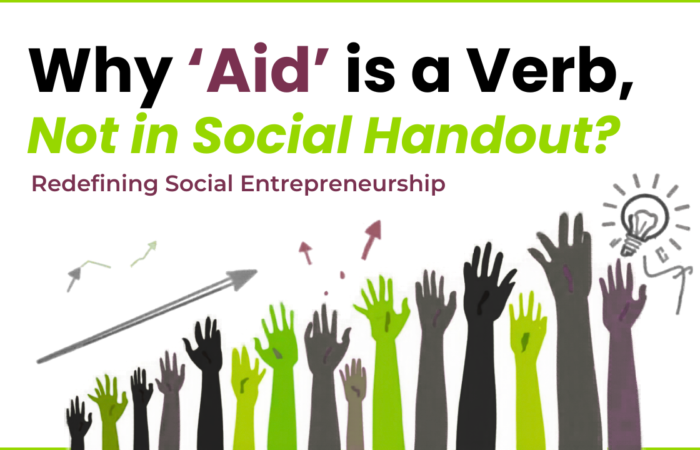
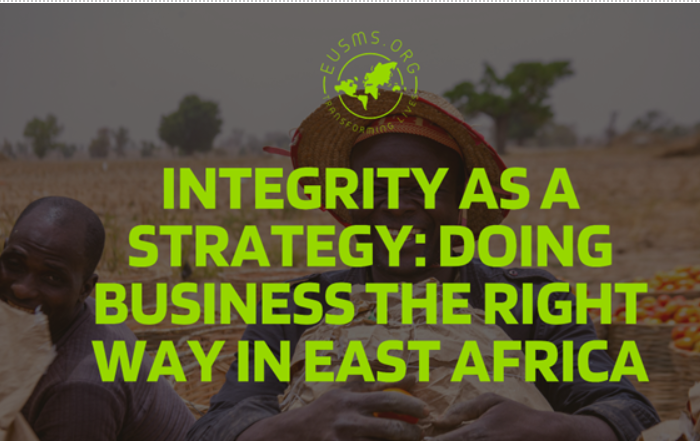
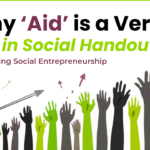
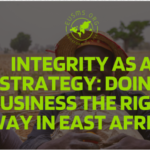
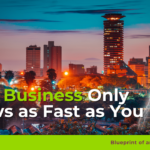
Hi, yeah this post is in fact good and I have
learned lot of things from it about blogging.
thanks.